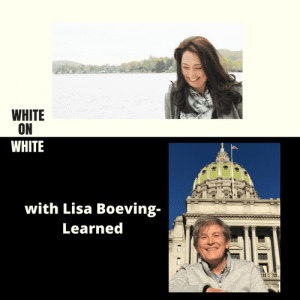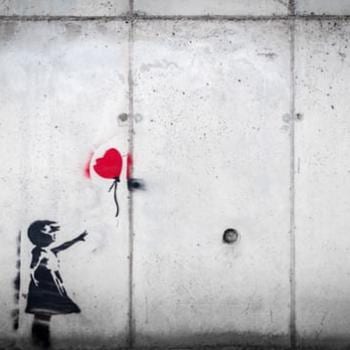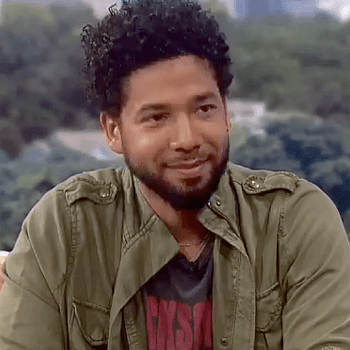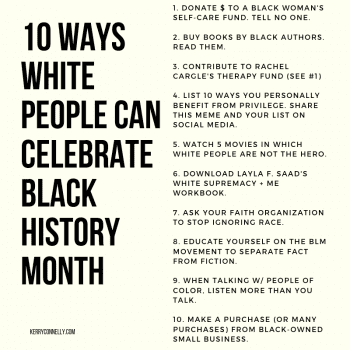My amazing friend, wife and mom of three, Michelle Ayala, is in the news here in New Jersey.
For having the cops called on her.
Because she was breastfeeding her child.
Now you and me, we’re going to break this shit down a little bit, because yes, it’s ridiculous to have the cops called on you for sitting on the beach feeding your kid. But there’s a bigger issue at play here — there’s a system of a weird sense of entitlement and the wielding of oppressive institutions of power. And it intersects with multiple headlines in the news.
First: We’re not afraid of breasts. We’re only afraid when women use them for their intended purpose.
We see breasts all the time. Or most of them, anyway. Just take a walk down the street — much less a beach — and you’ll see cleavage galore all over.
It’s a fact: #breastshappen.
For the sake of this conversation, let’s just think about the check out aisle at the grocery store. Go ahead and Google the covers of many of the magazines you’ll see there — covers of Cosmopolitan and Glamour, for example. There’s no shortage of side views, front views, all sorts of breasts in all sorts of shapes and sizes on these covers. But I don’t see any over-puritanical folks calling the cops on the manager of ShopRite.
We’re all used to the fact that mostly-uncovered breasts apparently belong in the check out aisle of our grocery stores. We accept this as appropriate, as acceptable, as no big deal. We don’t hyperventilate over how it will affect our children as they sit in our cart, and we don’t pay attention to the way we’re being indoctrinated into a system that objectifies women — and their breasts — for public consumption.
And this brings us to the crux of this particular problem: who owns the breast? Because surely it can’t be the woman attached to it.
Breasts have become an over-sexualized symbol of male consumption and male ownership. They have been appropriated by advertisers and commodified by consumers. Breasts have become a cog in the commercialization wheel, symbolically stolen from the women who own them like land from a native American. I’m half tempted to check my boobs for a bar code.
So we have no problem with this, apparently. The system has indoctrinated us well, and we are happy to set aside our alleged puritanical postulations for the commercialization of our boobs. But attach a baby to that breast? All of a sudden it’s offensive.
And listen — women have bought into this system just as much as men have. It was two women who harassed my friend Michelle on that beach — both before and after the cops they called told them she had broken no law. This is why I’m saying we have to notice the system — there is a repetitive structure at play that codifies our belief systems in favor of the oppressor. Until we begin to notice how it works, we will never be free. Michelle is not the first woman to be harassed for breast feeding, and the system supports and encourages the harassers.
So why is the sight of a breast feeding woman so clutch-the-pearls-in-precious-shock offensive?
Maybe because it is a subversive play at taking back the power of the feminine by taking back our bodies. By using our body for their divinely created purpose, we’re giving the middle finger to the institutions at large who claim a stake of ownership in our breasts. It’s ripping off the bar code, if you will, and setting it on fire.
But it’s also more than that. There’s also a jab at the patriarchal idea that women need men to survive. Here is a woman providing her very own sustenance for her baby. She is entirely self-sufficient, and she is wielding a life-giving creative power that men simply don’t have, and can only imagine. The act of breastfeeding is an act of the divine feminine, the divine mother providing sustenance to her children. It’s beautiful and inherently powerful. It’s mysterious and deeply spiritual. And this scares the bejesus out of men.
And so men, then, must conquer. They must have dominion. They must diminish and reduce the power of all that is in their sphere, they must stake their claim in the colonization of the psyche. So they claim ownership through sexualization, and soon, that hyper-sexualized societal view is deemed appropriate, but when women step into the power of their femininity, when they dare to claim ownership of their own bodies, it’s called “evil” or “offensive”.
Now before you get all male+frail on me, let me clear: I already know you’re a good guy, ok? If you’re like my husband, you’re an amazing dad who knows the hell-beauty of a midnight feeding and a diaper blowout, you stayed awake with your wife while she pumped so you could feed the baby, and you never ever ever grab her breast — or any other part of her — just because you feel like it, like it was yours or something.
And also know this: I’m not advocating for some sort of amazonian male-free world, either. I love men, and I do think women need men, and men need women. I think together, we make something beautiful — after all, she wouldn’t have a baby in the first place if it wasn’t for men. We need each other to create certain beautiful things, like babies. I think the full spectrum of gender identity is fucking gorgeous, and if we could get it right — you know, without all this dominion shit — this earthly realm could be something truly amazing.
What I’m talking about is archetypes and systems of power and institutions that play in the deep recesses of our psyches, and play out in the most subtle ways in our daily interactions, and BAM! You’re minding your business, feeding your hungry toddler, and all of a sudden there’s a uniform and a gun and a badge standing over you, demanding answers. Which brings me to point number two:
The police are not your personal moderators of pettiness, nor are they your gang of thugs.
Here again, we see the system in play, the suited-up-with-wedge-heels institutions of power throwing around their weight, calling in the big blue backup. As Michelle breast fed her daughter, a representative of the borough told her to cover up. When she refused, asserting her right to breastfeed anywhere, that representative — threatened by Michelle stepping into the feminine power of self-agency and self-ownership — began to yell at her and threatened to call the police. Michelle stood her ground, and soon enough, a police officer was on the scene.
Happily, in this instance, the officer was fully aware of the law and recognized that it was on Michelle’s side. He even apologized to Michelle, thanked her for her patience, and informed the administrator that there was nothing to see here. This is good. It is also not the point.
The point is that the institution of the police force was used to harass a person who was doing nothing wrong.
Gee. Where have we seen that before?
Notice the system.
The point is that by involving the police, you automatically invite a weapon into a situation that really doesn’t warrant it. All over the country there have been situations where this doesn’t work out well at all. Most of the time, it’s oppressed people who end up shot. When members of the power structure notice a member of a marginalized people doing something that makes them uncomfortable (not illegal, mind you — just uncomfortable) the first, knee-jerk reaction is to call in the people with the guns.
We have become so frail, clutching at our dying power systems, that when little black children sell water on the street or mow lawns to earn some extra cash or when moms breast feed their kid or when black people have a — gasp — barbecue, we get so uncomfortable and disturbed that we need to call the people in blue (and their guns)? Who might, you know, have something that’s actually better to do?
Like maybe fighting actual crime?
Notice the system.
The institution of the police force has become the grubby gang of thugs that whiteness calls in any time its nice, safe status quo is disturbed. But the cops aren’t your personal petty moderators, and they’re not there to be the white person’s enforcer. At least, that’s not what they’re supposed to be doing (then again, maybe it is…but that’s a whole other blog post). In fact, the lawyer for the borough that called the cops on Michelle actually encouraged this in his statement:
“Ursin said he tells any borough employees that if they are ever in a situation where they don’t feel they are capable of fully analyzing it or understanding it, they are ‘encouraged to have the police contacted’.”
On the White on White podcast, former police officer Lisa Boeving-Learned talks about just this thing — how calling the cops before you understand can have deadly consequences. It didn’t for Michelle, and I’m glad. But you know what? Michelle is white.
I don’t even want to think what would have happened if she had been a black woman.
It’s time to pay attention to the way institutions operate in our daily lives. It’s time to #noticethesystem and how it inculcates us to think that breasts belong anyone other than the woman attached to them or that it’s okay to call the police on people doing nothing wrong just because it makes us uncomfortable. It’s time to notice it, and call it out for what it is.
Listen to the White on White podcast, episode 3

This is an incredible episode on police brutality with former police officer Lisa Boeving-Learned. It’s an insightful conversation that delves into the complexities of police brutality and Black Lives Matter. And don’t forget to join the private White on White Facebook Group, where we’ll talk about all these issues and more.












